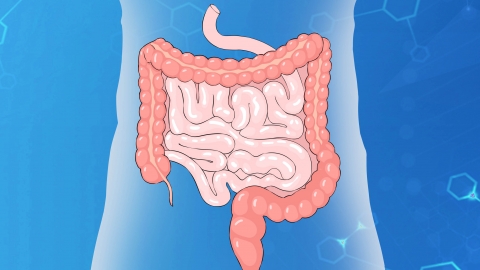What are the causes of decreased bowel sounds in the elderly?
Generally, weakened bowel sounds in elderly individuals may be caused by factors such as reduced intestinal motility, decreased food intake, functional dyspepsia, hypokalemia, or intestinal obstruction. It is recommended to seek timely medical consultation to identify the underlying cause and receive appropriate treatment under a physician's guidance. Detailed explanations are as follows:

1. Reduced intestinal motility: In elderly individuals, the intestinal smooth muscles may atrophy and muscle strength may decline, resulting in slower peristalsis and reduced movement of gas and fluids within the intestinal lumen. This leads to decreased and weakened bowel sounds, often accompanied by fewer bowel movements and dry, hard stools. Engaging in mild daily exercises such as walking or tai chi can help stimulate intestinal motility. Increasing dietary fiber intake and water consumption can also help maintain bowel regularity.
2. Decreased food intake: With age, digestive function declines and food intake often decreases. Insufficient food residue and gas in the intestines may fail to effectively stimulate peristalsis, resulting in weakened bowel sounds, often accompanied by mild weight loss and poor appetite. Eating small, frequent meals and consuming easily digestible liquid foods can help ensure adequate nutrient intake and stimulate moderate intestinal motility, thereby increasing bowel sounds.
3. Functional dyspepsia: Insufficient gastrointestinal motility and reduced secretion of digestive enzymes can slow down food digestion, weakening intestinal stimulation and resulting in diminished bowel sounds. Symptoms may include abdominal distension and a feeling of fullness after meals, without any organic disease. Patients should maintain regular eating habits, avoid overeating, and follow medical advice to take medications such as domperidone tablets, lactase tablets, or Jianwei Xiaoshi tablets to improve digestion and enhance gastrointestinal motility, thus alleviating weakened bowel sounds.
4. Hypokalemia: Long-term dietary imbalance or diuretic use can lead to low blood potassium levels, which can impair the contractile function of intestinal smooth muscles, slow intestinal motility, and weaken bowel sounds, often accompanied by fatigue and muscle weakness. Prompt dietary adjustments, including increased consumption of potassium-rich foods like bananas and spinach, are recommended. Additionally, follow medical advice to take potassium supplements such as potassium chloride extended-release tablets, potassium magnesium aspartate tablets, or Oral Rehydration Salts III to correct electrolyte imbalances and restore intestinal motility.
5. Intestinal obstruction: Narrowing or blockage of the intestinal lumen caused by intestinal tumors or adhesions prevents normal passage of intestinal contents. Early on, bowel sounds may be hyperactive, but as complete obstruction develops, bowel sounds may weaken or even disappear, often accompanied by severe abdominal pain, vomiting, and cessation of flatus and bowel movements. Immediate fasting and water restriction, along with gastric decompression, should be implemented. Follow medical advice to use medications such as glycerin enema, lactulose oral solution to promote bowel movements and relieve obstruction. For cases caused by tumors or severe adhesions, surgical interventions such as adhesion lysis or bowel resection with anastomosis may be required to restore intestinal patency and normal bowel sounds.
In daily care, attention should be given to the elderly individual's diet and bowel movements. Encourage appropriate physical activity and avoid prolonged bed rest. Prepare food in a soft, easily chewable form to aid digestion and absorption, while ensuring adequate daily water intake to prevent constipation. Keep the abdomen warm to avoid cold exposure, which may disrupt intestinal function.







